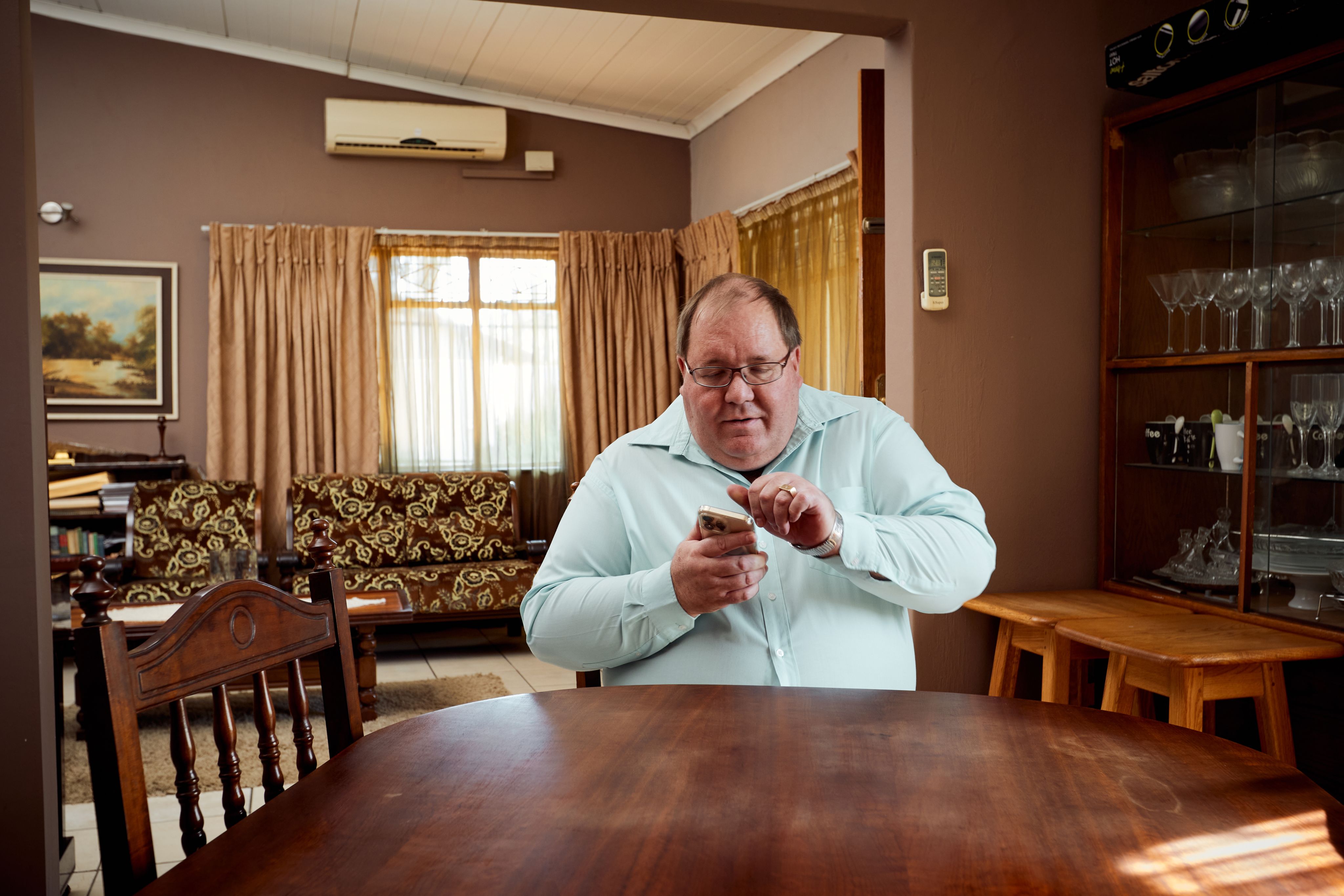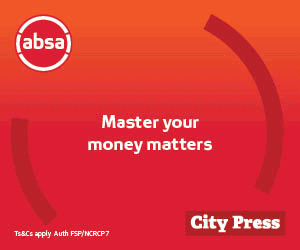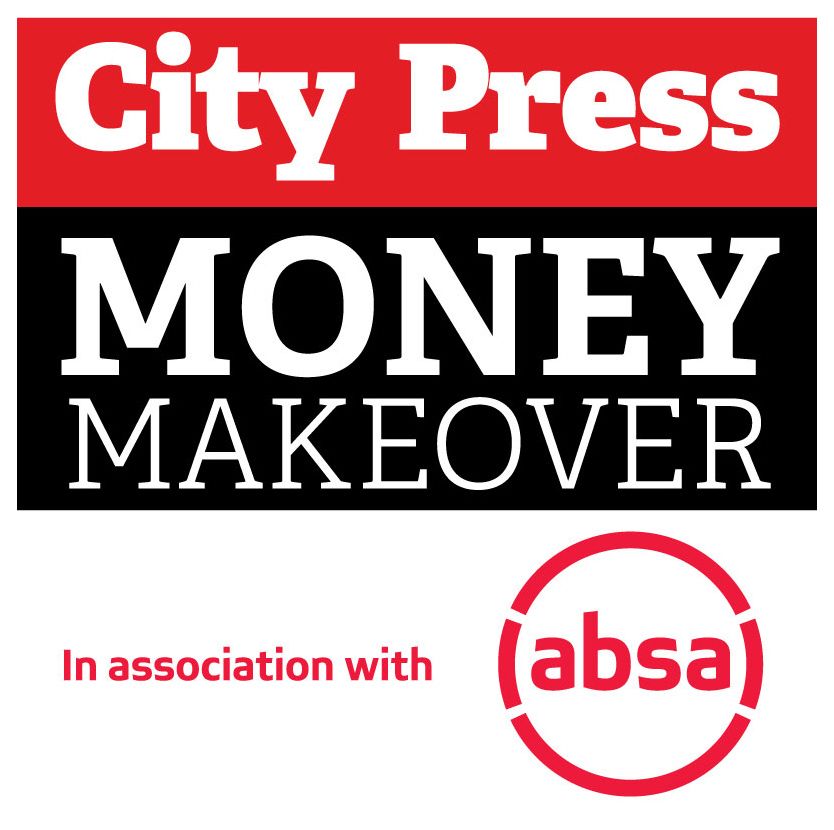Create your own financial plan
Not sure what to prioritise financially? Identify your short-term and long-term goals with Money Makeover
Follow six ordinary South Africans as they take up the Absa/City Press Money Makeover Challenge and undergo a money makeover bootcamp over six months. Each candidate has been allocated their own Absa financial adviser. The candidates are required to complete certain financial tasks and stick to the budgets set out for them. Personal finance expert Maya Fisher-French shares their stories.
We may have several financial goals and aspirations, and not be sure what to prioritise. Should you pay off debt or build an emergency fund? Should you be saving for your child’s education or for your retirement?
A starting point is to identify your goals, both short-term and long-term, and write them down. Work out how much you need to achieve these goals. Do not be scared by the big numbers; small but consistent steps will get you there.
You do not need to start saving for all these goals at once, but you do need a strategy that you can implement over time. It is also important that your long-term goals are not sidelined by short-term or more immediate goals.
When we put our candidates through the Money Makeover boot camp, we always start with the following steps to set them on their journey.
Get to grips with your money:
Do a spending analysis. Our candidates are required to go through the last three months of spending and understand where their money is going. In every case, the candidates were spending more than they realised, especially on non-essential items.
But it is not only cutting back on nice-to-haves – it is also being smart with how you are spending. Reviewing fixed expenses such as insurance and bank fees saved Johan, who will retire soon, thousands of rands, and product specialist Mlibokazi discovered how much she was spending on Uber trips for transporting her children.
By finding more cost-effective transportation she was able to save money, while start-up entrepreneur Sello is saving R300 a week by catching the Gautrain rather than driving to work. Once our candidates identified where they could cut back, this freed up money to meet their various goals.
Debt VS Emergencies:
Given the high interest rates on short-term debt, it makes sense to try to pay it off as quickly as possible. However, life happens and there are invariably emergencies or unexpected expenses that occur while you are trying to repay your debt. This is why we encourage our candidates to build up an emergency fund.
While Johan was tempted to put all his money into paying off debt, he used a refund from the SA Revenue Service (SARS) to kick-start his emergency fund. One should aim to start with R15 000 to R20 000 as an emergency fund. This is usually the amount that would cover those more frequent day-to-day emergencies that we experience.
Once the short-term debt is paid off, then build towards three months’ worth of expenses by allocating a monthly amount to be transferred to the emergency fund or use a percentage of bonuses or tax refunds to boost the emergency fund.
Debt Repayment Strategy:
How best to settle your debts will depend on the type of debt and how much debt you have. Most of our candidates have opted for the snowball method, in which you settle your smallest debt first.
Once that is settled you start on the next debt. Sello applied the snowball method by firstly paying off his Cash Converters loan. His next debt was an amount owing to SARS, which he paid off within four months of starting the challenge. You can work out roughly when your debts would be paid off, for example, Mlibokazi expects to be debt-free by November 2025.
Debt consolidation is another option where you take out a single loan from the bank and settle your smaller loans. This is usually done by extending the period of the loan and can create breathing space if you are struggling to meet repayments, but it does cost more in interest over time.
Although medical technician Zihle could apply for debt consolidation, she did not want to extend the time it would take to settle her debts. She chose to cut back on expenses and use the snowball method to become debt-free sooner.
Johan’s debt levels and credit record disqualified him from debt consolidation. In his case, there was no debt repayment option that would have seen him pay off his debt by the time he retired. The only option was debt review. This has many restrictions, including not accessing credit until all his debts are repaid. However, it means Johan will be debt-free when he retires and has given him the extra money to save towards retirement.

SHORT VS LONG-TERM INVESTMENTS
Retirement:
Even while paying off debt, our candidates were encouraged to continue to contribute to their retirement funds where possible. While saving for retirement may feel like a “luxury” when struggling to pay off debt, you benefit from compounding over time.
Even if you have other short- or medium-term goals such as buying a home or starting your own business, do not sacrifice your retirement plans completely for their sake. Aim to have some money growing for your retirement one day.
Even a small contribution each month towards retirement can grow significantly over time. For example, if you contribute just R500 a month for 25 years, you would have contributed R150 000, but the fund could be worth R660 000 if you received an average return of 10% per annum.
Sello is in his forties, getting closer to retirement and has a retirement savings shortfall. He has taken out a retirement annuity to supplement his employer’s pension fund. It is a small amount that he can currently afford but he will adjust the premium once his financial situation has improved.
Zihle is in her twenties and belongs to a company retirement fund. As long as she does not cash in her retirement fund, she does not have an immediate need to supplement retirement savings and is focusing on paying off her debts.
Johan only has a few years to retirement so he needs to put as much as possible into investments that boost his retirement savings. Apart from his company pension fund and retirement annuity, he is investing in an endowment and a tax-free savings account. These are all appropriate investment vehicles for a goal of more than five years.
Medium-term goals:
Several of our candidates have medium-term goals they wish to achieve in the next 10 to 15 years. These include saving for children’s tertiary education and having their own business one day. Before investing in these goals, one should first focus on emergency funds and paying off expensive short-term debt, and keeping up with existing retirement contributions.
If those financial needs are met, then you can focus on the medium-term goals. The sooner you start investing, the more compounding will work for you. For example, Molefi plans on having R1 million to start his own business in 10 years’ time. He has calculated that he needs to invest R7 000 a month. One can do a similar calculation for a child’s tertiary education. As these are medium-term investments, you need to select funds that would grow above inflation, such as unit trusts or exchange-traded funds. These can include tax-free savings accounts offered by investment companies.
Short-term goals:
Buying a home is a common financial goal for a young person. Saving up the deposit and transaction fees is an important part of their short-term goals. However, before you start planning to buy a home, you need to pay off your short-term debt. This helps improve your credit record and, once those debts are paid, you will have the additional cash flow to save for a deposit and, ultimately, pay for a home loan.
Although Mlibokazi identified that owning a home is an important goal, she is first focusing on paying off her debts. Once her debts are settled, she will have additional funds that she could use towards her dream home.
Molefi is also planning on buying a home, but he has other goals such as getting married and starting his own business. As Molefi has already settled his debts, he has the cash flow to invest for these various goals.
He is achieving these by having separate investments for each goal. While he is investing in unit trusts for his medium-term goal, for a shorter-term goal of saving for a wedding or deposit on a home, a lower-risk savings account with a bank could be more appropriate. This would include a fixed deposit, money market account or a notice-deposit.
Identify your goals and have separate investments – you need to know what you are saving towards, and what that number should be. It is important that the correct investment vehicle is used for each goal.

EXAMPLE OF A FINANCIAL PLAN
A financial planner can assist you in calculating your goals, but here is an example of how to approach a goal-based plan.
1I have R2 000 in my budget through cutting back on expenses.
2My total debt repayments are R10 000 a month.
3I will continue with my existing retirement contributions.
- In the first month I will put the R2 000 into an emergency fund.
- In the following months I will allocate R500 to my emergency fund (until I reach a balance of R15 000).
- I will use the remaining R1 500 to target my first debt. Once that debt is paid off, I will use that instalment to tackle the next, and so on. I calculate I will be free from debt by December 2024.
Once I am debt-free, I will have R10 000 extra to put towards my goals.
- Boost my emergency fund: Add R1 000 a month to emergency fund in a money market account to reach three months of living expenses.
- I am saving towards a deposit on a home: allocate R4 000 to a notice account. I will have saved R100 000 in two years.
- I am investing towards my child’s tertiary education in 12 year’s time: allocate R2 000 to a unit trust. I will have R500 000 when she starts studying.
- I want to start my own business in 15 years’ time: Allocate R3 000 to a tax-free savings account with a unit trust or exchange-traded fund. I will have R1.2 million.
- Any bonus or tax rebates I will use to help repay my debt and boost my emergency fund.
- Once I am free from debt, I will use bonuses and tax rebates to boost my retirement fund (benefit from the tax saving).
- When I buy my home, I will pay an extra 10% of the mortgage each month – this means I will pay my home off five years early.
Find out more about the contestants and their advisers here:
If you really want to get your finances in order, you have to start tracking your spending. If you cannot commit to that, it is unlikely you will be able to reach your goals.
City Press will follow the candidates’ progress on the first and third week of each month, as well as online on the Money Makeover page:
Follow the journey – and join in – @CPMoneyMakeover and #CPMoneyMakeover on Facebook and Twitter
Absa Enterprise Development assists SMEs with access to business development support, markets access and access to funding based on certain criteria’s being met. For further information on Absa Enterprise Development you can email ed@absa.africa
You can follow the story on social media #CPMoneyMakeover
Subscribe below for the Money Makeover Newsletter












